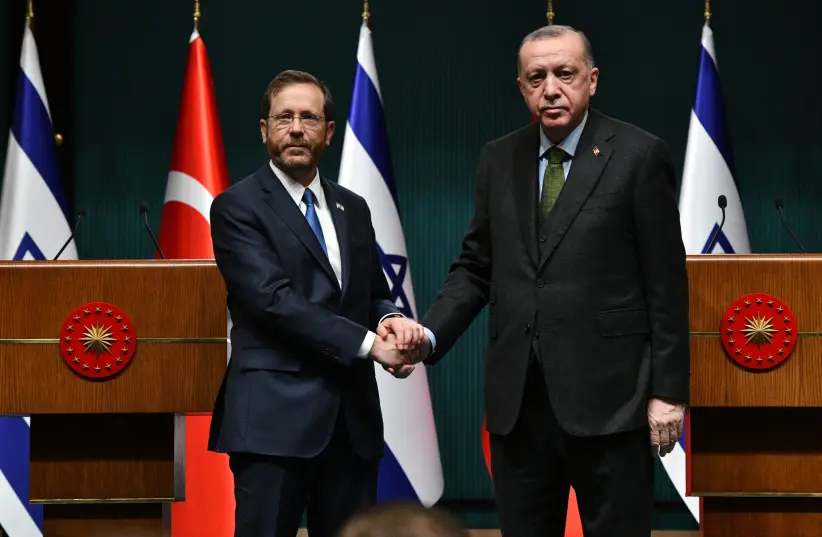Turkish FM: There is a new momentum in our relations at this moment
Turkish Foreign Minister Mevlut Cavusoglu told a group of Israeli journalists visiting Ankara that “there is a new momentum in our relations at this moment.”
“Our two countries have a long history of cooperation. We have a significant cultural and social connection. We have common interests both in a bilateral and regional context,” he said on Wednesday.
He said there has been constructive dialogue between presidents Recep Tayyip Erdogan and Isaac Herzog, and Erdogan spoke with Prime Minister Naftali Bennett on the phone. Cavusoglu also said he has been in touch with his Israel counterpart, Yair Lapid.
“We are seeking to establish a sustainable relationship,” said the Turkish foreign minister. “Since 1949, the relations have had ups and downs. The downs were due to the violation of Palestinian rights, and not due to problems in our bilateral relations. We expect from the Israeli side to respect international law on the Palestinian issue for a sustainable relationship.
“Erdogan supports the two-state solution. We believe there is no alternative to the two-state solution. Erdogan expressed expectations during Herzog’s visit in a very candid way but called for restraint during Ramadan… which coincides with the Jewish Passover.”
He noted Turkey’s condemnation earlier this week “of the recent terror attacks in Israel. We also condemned the killing of an innocent and unarmed Palestinian woman killed on April 10. We hope that these incidents will not trigger an escalation during Ramadan, Passover and Easter.”
On the economic side, he said, Turkey has significant trade cooperation volume and the bilateral trade volume increased significantly in the last three years despite COVID.
Though the pandemic reduced tourism, he said, “this year we are hoping to host more Israeli tourists in Turkey and hopefully [in] my hometown in Antalya as well.”
He said the two countries could cooperate in the fields of energy, trade, investments, science and technology, agriculture, food security and the environment. “Cooperation with Israel on regional issues and the export of energy resources could be highly beneficial.”
There was clear excitement to move forward with the potential natural gas pipeline if the right economic terms can be found.
Turkish Deputy Energy Minister Alparslan Bayraktar told the Israeli press delegation that back in 2017, Israeli-Turkish delegations were discussing a functioning pipeline within four to five years – by 2021-2022.
Bayraktar implied that due to progress by Israel regarding the Leviathan natural gas field, the pipeline could move forward even faster.
“We need a pragmatic approach, a creative approach and a constructive approach. If it helps address some of the conflicts in the region or bilaterally… we are fine with it,” he said.
He said the Turkish-Russia pipeline, at almost 1,000 km. long (almost twice the size of the potential Israeli-Turkish pipeline), was built in three years because the political will to move forward was strong.
The deputy minister added that the Black Sea might even be a more challenging area to build a pipeline than the Mediterranean Sea. Despite this optimism, Bayraktar suggested that there were still many complexities to work through on the Israeli and Turkish sides as well as within the US-Israeli private sectors involved in the Leviathan project.
Further, he said he hoped there could be progress following an expected visit by Cavusoglu to Israel at the end of May.
Bayraktar dismissed the theoretical competing Israeli pipeline project with Greece, Cyprus and Italy as being an unrealistic way to address European natural gas needs, one of the main stated goals of the project.
Source: https://www.jpost.com/middle-east/article-704051
